

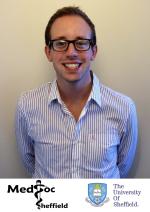
Theme
Clinical Assessment and the OSCE
INSTITUTION
The University of Sheffield Medical Society
Academic Unit of Medical Education, The University of Sheffield
The first objective structured clinical examination (OSCE) can be a daunting experience. Sheffield Medical Society (MedSoc) organise a mock OSCE for third year students. We surveyed the 2012 mock OSCE in order to assess its effectiveness.
The MedSoc Mock OSCE
- Written and organised by senior medical students that represent MedSoc on Academic committees in the Medical School
- There is NO faculty input
- Examiners are 4th & 5th year medical students
- Patients are volunteer students from early 'pre-clinical' years
- Consists of right 8 minute stations
- 6 minutes to perform the task
- 2 minutes to answer questions
- Each student receives instant (at station) individual written and verbal feedback
Figure 1: Students taking part in the MedSoc Mock OSCE
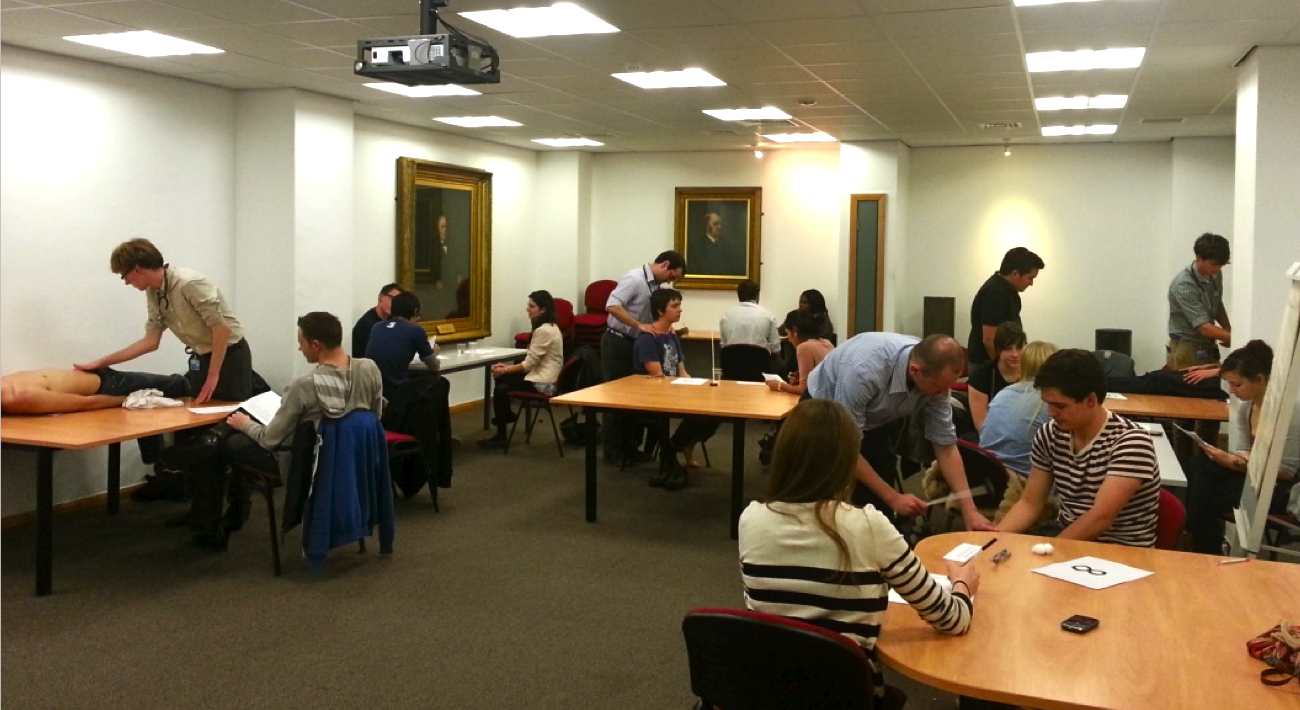
Hypotheses
? A student-led mock OSCE helps to prepare medical students for a real OSCE
? The confidence of the medical students improves after the mock assessment
? Medical students feel more familiar with the forthcoming assessment
- We distributed an online survey to the 2012 third year student cohort.
- 8 questions were presented at three time points:
- Before mock OSCE
- After mock OSCE, before real OSCE
- After real OSCE
- Students were asked to rate on a 5-point Likert scale.
- Statistical analysis was by paired and unpaired t-tests as appropriate.
Figure 2a: The Mock OSCE study questions used in the online survey
.png)
Figure 3: Average student response for each question at all three time points (n=33).
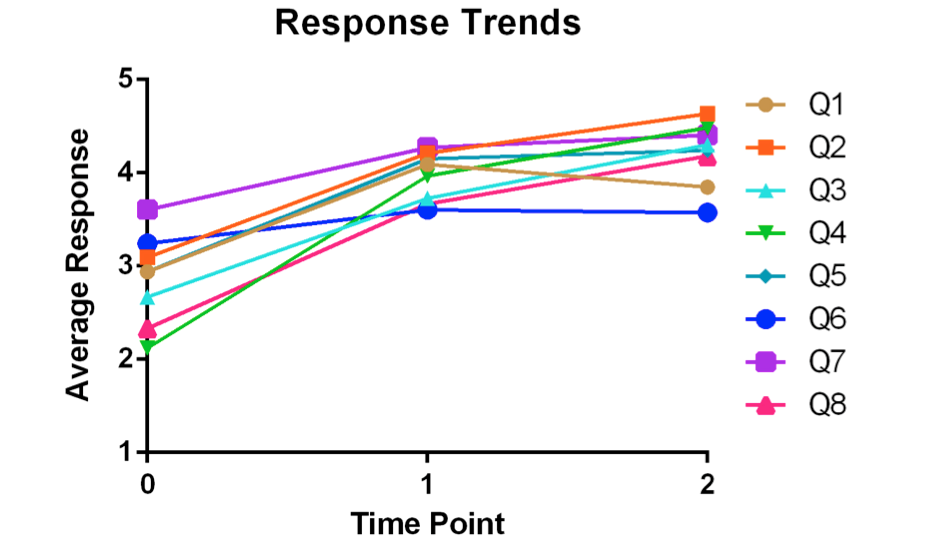
Figure 4: Average student response to the statements: (a) "I am familiar with the types of questions an examiner will ask me at the end of an OSCE station", (b) "I feel I am able to effectively use the time available during an OSCE station" and (c) "Overall I feel well-prepared to take an OSCE-style examination" (n=33) (*** p=0.003, **** p=<0.0001).
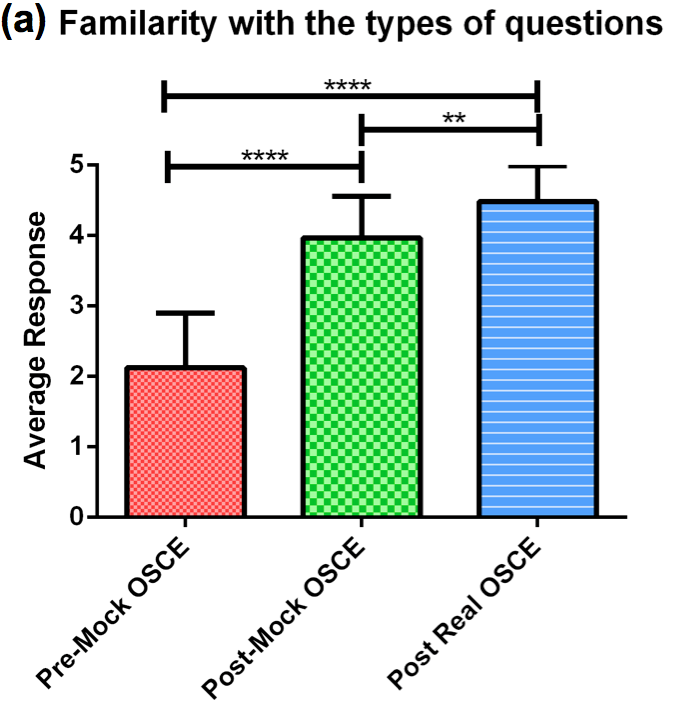
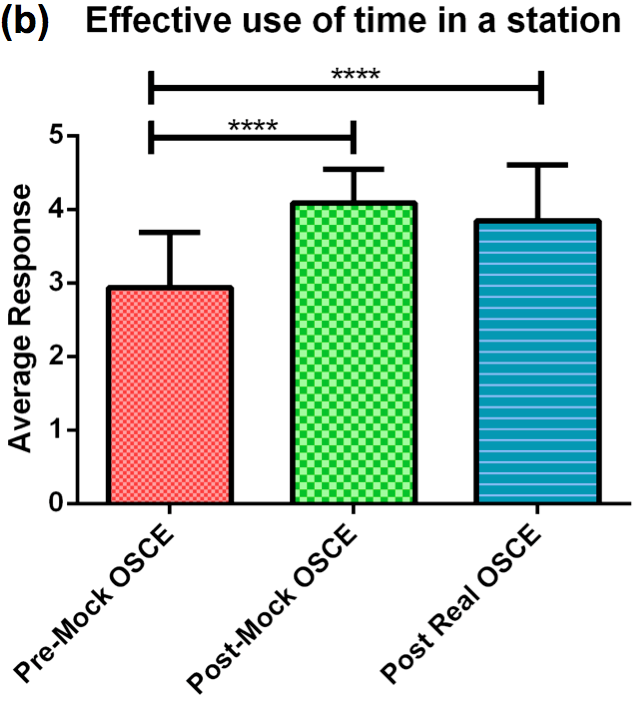
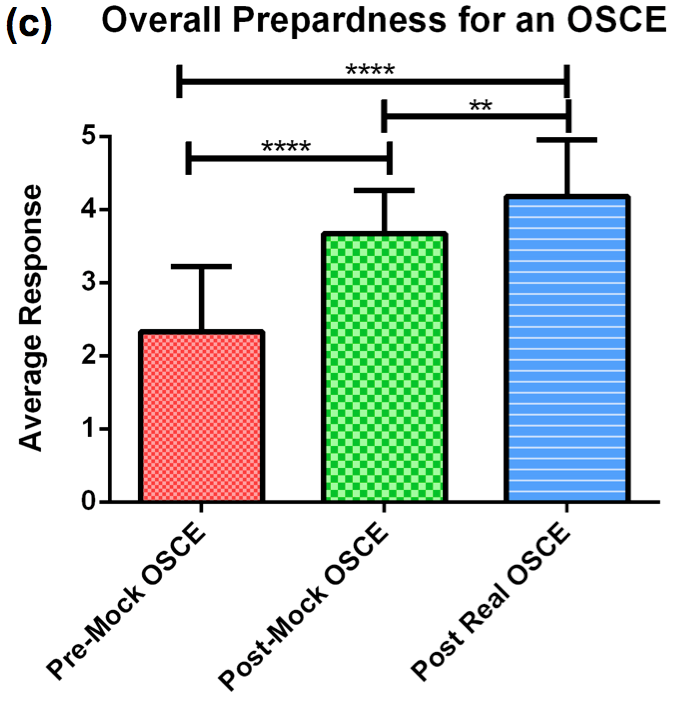
33 students completed all three
surveys. Their results confirm a
progression of preparedness; from
2.33±0.3 to 3.67±0.2 after the
Mock OSCE (p<0.0001), and
(retrospectively) to 4.18±0.26 after
the real OSCE (p<0.0001).
Interestingly question 1 was the only
average response to fall between the
2nd and 3rd time points. This is likely
due to the fact that the Mock OSCE
timings are shorter than the real OSCE
timings to familiarise students with
extra time pressure. This may be altered
in future years.
- Mock OSCEs help prepare medical students for their first summative OSCE.
- Students feel more prepared, confident and familiar with assessment by an OSCE.
- A student-led process is effective, without requiring faculty involvement, or prejudicing the confidentiality of the exam.
Thank you to the University of Sheffield Medical Society Committee 2012-2013 for their assitance in data collection for this project.
 Send Email
Send Email